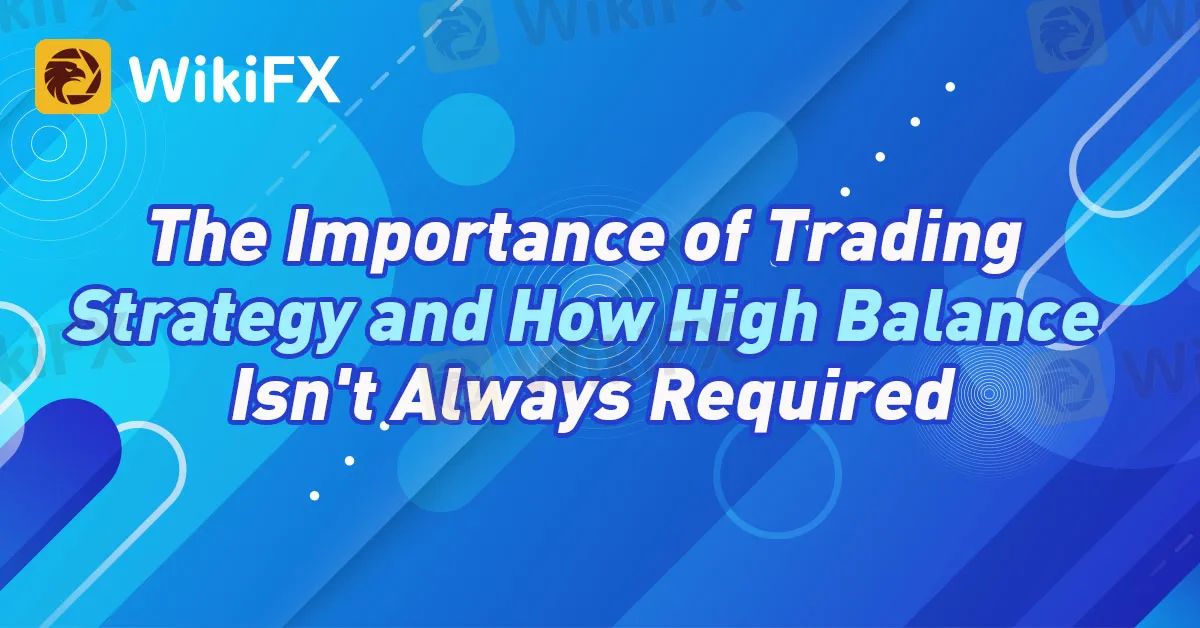Abstract:When it comes to trading, many people believe that a high account balance is a prerequisite for success. However, this is not always the case. While having a substantial balance can provide certain advantages, it is the trading strategy that ultimately determines a trader's success, not just the account size.

When it comes to trading, many people believe that a high account balance is a prerequisite for success. However, this is not always the case. While having a substantial balance can provide certain advantages, it is the trading strategy that ultimately determines a trader's success, not just the account size.
A trading strategy is a set of rules and guidelines that govern a trader's decision-making process. It encompasses various aspects, such as entry and exit points, risk management, and position sizing. A well-defined and carefully executed trading strategy can lead to consistent profitability, regardless of the account balance.
The key to a successful trading strategy lies in its effectiveness, not in the account balance. A strategy that focuses on analyzing market trends, identifying high-probability setups, and effectively managing risk can yield positive results, even with a relatively modest account balance. It is the quality of the trades and the ability to execute the strategy that matters, not the size of the account.
Moreover, trading strategies can be tailored to individual risk tolerance and financial goals. Traders with smaller account balances can opt for strategies that prioritize capital preservation and aim for consistent, smaller gains. On the other hand, traders with larger balances may choose strategies that allow for more significant positions and potential higher returns. The key is to find a strategy that aligns with your risk appetite and objectives.
By focusing on developing and refining a sound trading strategy, traders can achieve consistent profitability and long-term success. It is crucial to backtest the strategy, analyze historical data, and adapt it to changing market conditions. Continuous learning, experimentation, and adjustments are essential components of successful trading strategies.
While a high account balance can provide certain advantages, such as the ability to trade larger positions, it is not a substitute for a robust trading strategy. In fact, relying solely on a large account balance without a well-defined strategy can lead to reckless trading decisions and significant losses. It is the combination of a well-executed strategy and effective risk management that separates successful traders from the rest.
In conclusion, trading strategy plays a vital role in a trader's success, and a high account balance is not always necessary. A well-defined and effectively executed strategy can lead to consistent profitability, regardless of the account size. By focusing on developing and refining your trading strategy, adapting it to changing market conditions, and practicing disciplined risk management, you can achieve long-term success as a trader. Consider utilizing the resources and services provided by WikiFX to enhance your trading journey.










